
The seventh (online) partners' meeting took place on Zoom on 23 April 2021. Ann Mutvei from Sodertorn University (SE) and Lorenzo Martellini from Pixel (IT) presented to the partners the current results related to the entire project. A special atetntion was dedicated to the feedback on the training activity that was organized on Zoom.
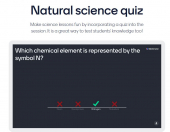
Mentimeter: Physical Properties of Metals lesson in Chemistry. An interactive presentation tool which allows you to collect polls, data and opinions from participants using smart devices.
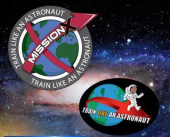
The NASA Office of STEM Engagement works collaboratively with NASA's mission directorates to promote education as an integral component of every major NASA research and development mission. These efforts result in NASA Education:innovative and informative educational materials that engage student interest in science, technology, engineering and mathematics.

The sixth (online) partners' meeting took place on Zoom on 7 January 2021. Ann Mutvei from Sodertorn University (SE) and Lorenzo Martellini from Pixel (IT) presented to the partners the current results related to the identification of new learning objects for already existing ICT Tools to be used in Science Education

Check out National Geographic Education . Teachers can use the National Geographic Education site as a trusted resource for geography-based lessons, as well as lessons for other subjects that can be rooted in geography, such as weather, animals, history, and culture.

The fifth (online) partners' meeting took place on Zoom on 131 October 2020. Ann Mutvei from Sodertorn University (SE) and Lorenzo Martellini from Pixel (IT) presented to the partners the current results related to the production of the reviews of the ICT Learning Objects.
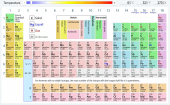
The Interactive Periodic Table is a proposed ICT tool for science teachers. Students are given definitions and explanations of electronegativity and first ionisation energy.
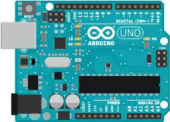
Arduino is one of the ICT tools identifed by the partners to be used by science teachers with their students. Arduino allows to programme a traffic light throught a CPU (Central Processing Unit) on a board with a set of digital and analog connectors.

A new assessment tools addressing the 5 Digital Competences (i.e Information processing, Communication, Content creation, Safety, Problem solving) is available on the project portal.
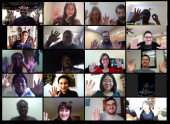
The fourth (online) partners' meeting took place on Zoom on 15 June 2020. Ann Mutvei from Sodertorn University (SE) and Lorenzo Martellini from Pixel (IT) presented to the partners the current results and the plans for the future activities were discussed..
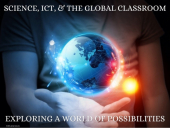
The selection of ICT learning objects is available in an an online interactive Database collecting the reviews of the experts. Each review starts from the ICT learning object and provide details on the entire learning pathway that makes use of the learning object.
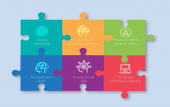
The database of reviews of competence assessment tools is available. These tools has to be used by science teachers to identify the gaps of knowledge as far as Digital competences are concerned that prevent them in effectively use ICT based methods and teaching tools with their students.

The third (online) partners' meeting took place on Zoom on 9 March 2020. Ann Mutvei from Sodertorn University (SE) and Lorenzo Martellini from Pixel (IT) presented to the partners the current results and plans for future activities were made.
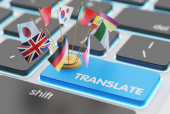
The guidelines for teachers, school directors and policy makers are available on the project portal in national languages (Italian and Swedish)

The Guidelines for School Directors and Policy Makers are available on the project portal. The aim is to outline a suggested strategy for the mainstreaming of the implementation of innovative ICT based approaches to teach sciences at secondary school level and to introduce them as part of the teachers’ professional qualifications through a more aware and structured mastering of digital competences.
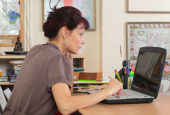
The Guidelines for Teachers are available. The Guidelines provide methodological and operative insights to make teachers able to effectively design ICT based science teaching learning objects for their lessons.

The second meeting took place in Limerick (IE) on 19 – 20 September 2019. Ann Mutvei from Sodertorn University (SE) and Lorenzo Martellini from Pixel (IT) presented to the partners the current results related to the production of the guidelines for teachers. The meeting was also the opportunity for the partners to discuss the next activity which is the development of the toolkit for teachers.
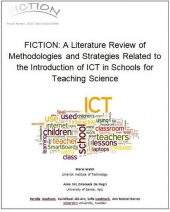
The Literature Review is available on the project web site. It is based on:
- Introduction on literature on use of ICT in school education, the main EU and national policies on the matter and the theoretical assumptions of the project
- The analysis of at least 5 case studies per country
- At least 5 (per country) interviews with science teachers of the participating schools to on the most important obstacles in using ICT tools and related needs.

Partners interviewed science teachers in order to elicit information on the teachers’ current use of ICT tools, their success stories, problems with adoption, and their ideas for improvements. The interviews have been analysed to find common themes and issues that can be used as the basis for guidelines and improved tools.
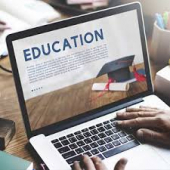
The project partners are currently working on the production of the first project deliverables. For the purpose, each project partner is interviewing science teachers at secondary school level and are identifying relevant case studies. The result of this activity will be included in the literature review.

The project partners are currently creating the network of schools interested in promoting awareness of religions and foster a sense of mutual tolerance at school. Several schools have already been involved from project partners. If you are interested to join the project, do not hesitate to contact us!
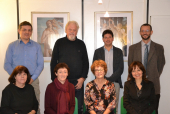
The Kick-off meeting took place in Florence on 28 – 29 November 2018. The meeting was an opportunity for the partners to get to know each other and to discuss all details related to the project's activities. The partners presented their organizations and actively participated in the Impact+ workshop conducted by the project applicant. At the end of the meeting all the partners had a clear view of the future project's implementation, the financial rules and the next activity which is the creation of guidelines for teachers, school directors and policy makers on the promotion of the use of ICT for science education.

The Fiction project has been funded, by the European Commission through the Swedish Council for Higher Education, with the aim of enhancing teachers' knowledge to teach students to use digital tools for their own understanding of science. The Fiction project has the aim to provide science teachers with the skills to use digital tools and strategies for teaching at secondary school level.



